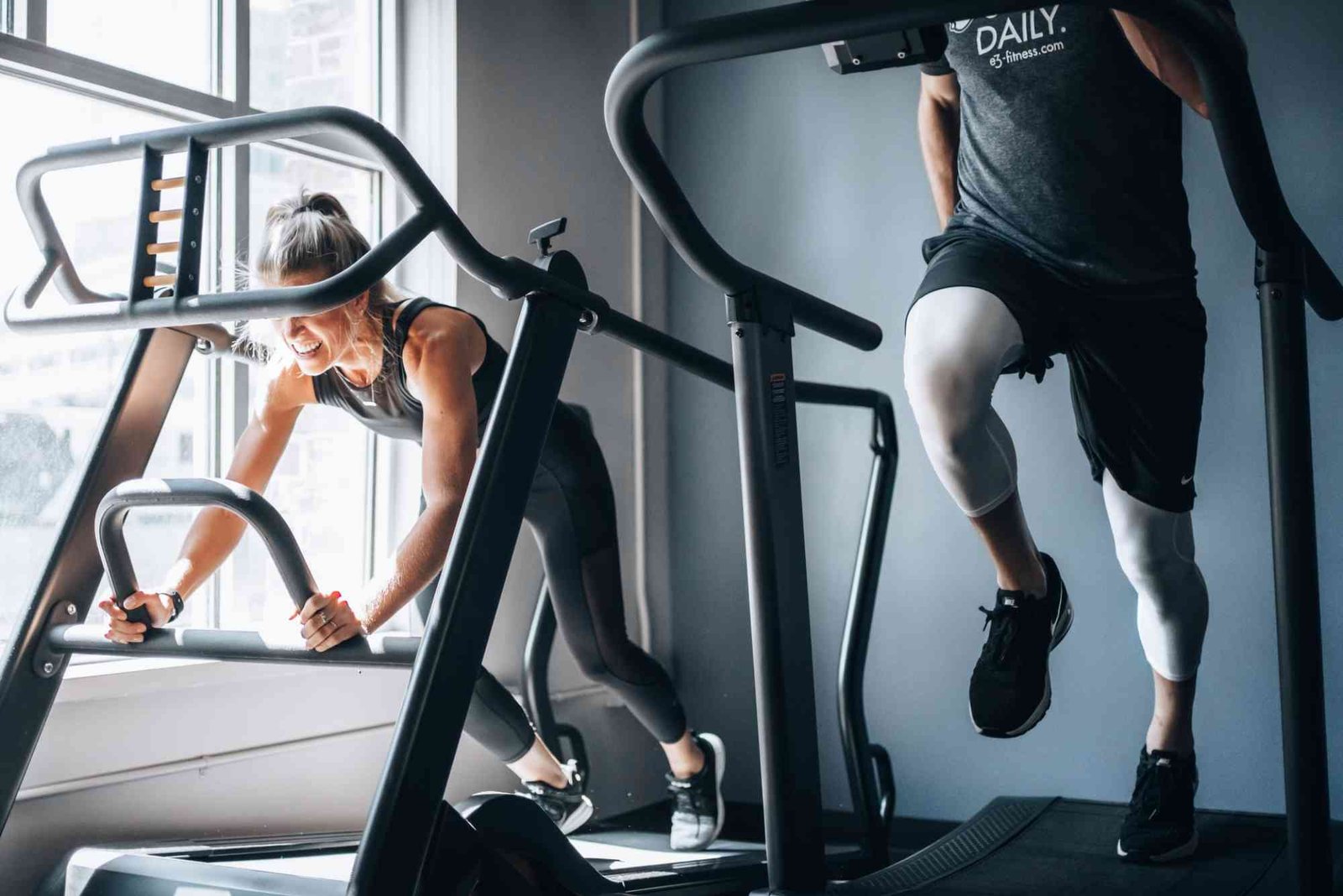Introduction
Choosing the right time to work out can make all the difference in achieving your fitness goals. Many fitness enthusiasts often ask, “Which time is good for gym — Safe Practice & Recommendations?” The truth is, there isn’t a one-size-fits-all answer. The best gym time depends on your schedule, energy levels, and personal goals. However, understanding how your body responds to different times of the day can help you maximize performance, reduce injury risks, and maintain consistency. In this guide, we’ll explore safe gym practices, expert recommendations, and the pros and cons of morning, afternoon, and evening workouts to help you find the time that fits your lifestyle perfectly.
Understanding the Importance of Timing in Fitness
Time plays a crucial role in determining the effectiveness of your workout. Your body’s internal clock, known as the circadian rhythm, influences hormone levels, energy, and muscle function throughout the day. Choosing the right gym time based on your body’s rhythm can improve focus, endurance, and overall workout quality. According to ACE Fitness, aligning your workouts with your natural energy peaks can enhance motivation and consistency. Whether you’re aiming for fat loss, muscle gain, or endurance improvement, identifying when your body performs best can help you achieve faster, safer, and more sustainable results.
Morning Gym Time — Energize Your Day the Right Way
Working out in the morning has many benefits, especially for those who prefer a structured routine. Morning sessions can help you start your day with focus, energy, and a positive mindset.
Benefits of Morning Workouts
Morning workouts are excellent for boosting metabolism. Exercising before breakfast encourages your body to burn fat efficiently throughout the day. Studies show that morning exercisers tend to be more consistent since early workouts minimize scheduling conflicts and distractions. You’ll also experience enhanced mental clarity and productivity after a good sweat session. Morning exercise triggers endorphins—your body’s natural “feel-good” hormones—setting a positive tone for the rest of your day.
Safety and Performance Considerations
While morning workouts are energizing, your body temperature and muscle flexibility are lower upon waking, increasing the risk of strains. Therefore, a proper warm-up is essential. Spend 10–15 minutes stretching or doing light cardio before lifting weights or starting intense routines. Drink a glass of water to rehydrate, as the body tends to be slightly dehydrated after sleep. Eating a small, balanced snack—like a banana or protein smoothie—can also help maintain energy levels during your session.
Afternoon Gym Time — Boost Strength and Focus
Afternoon workouts are ideal for those who struggle to get moving in the morning. Between 12 PM and 5 PM, your body temperature, flexibility, and reaction time peak, providing optimal conditions for strength training and endurance workouts.
Benefits of Afternoon Workouts
During this period, your muscles are warm and pliable, reducing the chance of injuries. Energy levels tend to stabilize after lunch, making it an excellent window for high-intensity training. Afternoon workouts can also act as a natural stress reliever after a busy morning. Another advantage is social motivation—gyms are often moderately busy at this time, allowing you to work out with friends or trainers.
Safety and Nutrition Tips
Avoid heavy meals immediately before working out, as this can cause sluggishness. Instead, consume a balanced lunch with lean protein, complex carbs, and healthy fats 1–2 hours before your session. Stay hydrated throughout the day, especially if your job involves sitting for long periods. Cooling down after the workout is just as important—spend time stretching to relax the muscles and prevent stiffness.
Evening Gym Time — Maximize Power and Relaxation
Evening workouts are popular among working professionals who find it hard to fit gym time during the day. Exercising between 6 PM and 9 PM can deliver impressive results if managed correctly.
Benefits of Evening Workouts
In the evening, your body temperature and hormone levels—especially testosterone—are at their peak, enhancing strength and endurance. This is the best time for weightlifting and high-intensity exercises. Many people report performing better and lifting heavier in the evening compared to morning sessions. Moreover, evening workouts help relieve stress after a long day, improve mood, and promote better sleep quality when done at least two hours before bedtime.
Safety and Recovery Advice
While evening sessions are convenient, avoid working out too late, as it can raise adrenaline levels and interfere with sleep. Give your body time to cool down and relax before going to bed. Have a light post-workout meal rich in protein and carbohydrates to support muscle recovery. Consistency is key—try to stick to the same workout time each day to train your body to adapt.
How to Choose the Best Time for You
When deciding which time is good for gym — Safe Practice & Recommendations, consider your daily routine, work commitments, and personal energy patterns. Morning workouts suit early risers aiming for discipline, afternoon workouts benefit those seeking strength gains, and evening sessions favor people who want to de-stress and perform at their peak.
Listen to your body. If you feel energized and strong at a particular time, that’s likely your ideal workout window. Tracking your performance and energy levels for a week can help you identify the most productive time slot. Remember, consistency outweighs timing. The best time for the gym is the time you can commit to regularly without skipping sessions.
Safe Gym Practices for Every Time of Day
Regardless of when you exercise, practicing safety ensures long-term success and injury prevention. Always start with a proper warm-up and end with a cool-down session. Maintain correct posture during exercises to protect your joints and spine. Stay hydrated before, during, and after your workout.
Wearing appropriate gym gear and footwear enhances comfort and stability. Listen to your body—if you feel pain or extreme fatigue, take a rest day. Overtraining can cause muscle strain and burnout. It’s also beneficial to include rest days in your weekly plan for muscle recovery and growth. For more expert insights, Read about which time is good for gym to understand how timing impacts results and motivation.
Expert Recommendations from Fitness Professionals
Most trainers agree that the best time is the one that aligns with your schedule and energy levels. However, they also emphasize that morning workouts improve consistency and mental alertness, while evening workouts may improve performance due to higher energy reserves.
According to ACE Fitness, individuals who choose morning routines are more likely to maintain regular exercise habits, while those who prefer evenings often achieve greater muscle strength and endurance. The key is to prioritize routine over perfection—when exercise becomes a habit, results naturally follow.
Nutrition Tips to Support Your Gym Schedule
Your workout timing should align with proper nutrition. If you train in the morning, a light pre-workout meal like oatmeal, yogurt, or fruit is ideal. Afternoon or evening exercisers can benefit from more substantial meals 1–2 hours before training. After the workout, refuel your muscles with a protein-rich snack or shake to promote recovery.
Stay consistent with your hydration—drink water throughout the day, not just before exercise. Electrolyte drinks can be helpful for those engaging in intense or long-duration sessions. Avoid skipping meals, as it can lead to fatigue and reduced workout performance.
The Psychological Factor — Why Routine Matters More
Finding which time is good for gym — Safe Practice & Recommendations also involves understanding your mental rhythm. If you’re motivated in the morning, seize that energy early. If you’re more focused and productive later, schedule your workouts accordingly. Motivation fluctuates, but discipline and habit ensure long-term results.
Morning exercisers enjoy psychological benefits such as a sense of accomplishment early in the day, while evening exercisers often feel relaxed and sleep better after their sessions. Whatever time you choose, consistency builds momentum and leads to lasting fitness success.
Common Mistakes to Avoid
One of the most common mistakes is forcing yourself to work out at an inconvenient time. If your body feels sluggish in the morning, you’re less likely to perform well. Another mistake is skipping warm-ups or cool-downs due to time constraints—this can increase injury risk. Avoid comparing your schedule with others; what works for someone else might not suit your lifestyle. Lastly, avoid overtraining. Balance gym sessions with adequate rest and nutrition for optimal results.
So, which time is good for gym — Safe Practice & Recommendations? The answer depends on your body, goals, and daily routine. Morning workouts build consistency, afternoon workouts improve strength, and evening sessions maximize endurance. The key takeaway is to find a time that suits your lifestyle and stick with it. Exercise regularly, stay safe, and enjoy the journey of becoming healthier and stronger.
To continue improving your fitness knowledge and lifestyle, check out More sports & fitness articles. These resources can help you stay informed and inspired on your wellness journey.
FAQs
Is morning or evening the best time for the gym?
Both times are effective. Morning workouts improve consistency and metabolism, while evening workouts enhance strength and performance.
Is it OK to go to the gym at night?
Yes, it’s safe to go at night as long as you finish your workout at least two hours before bedtime to allow your body to relax.
How many days per week should I go to the gym?
For best results, aim for 4–5 days per week with at least one rest day for muscle recovery and injury prevention.
Can I work out on an empty stomach in the morning?
Yes, if your body feels comfortable, fasted workouts can burn fat efficiently. However, listen to your energy levels and hydrate properly.
Does workout timing affect muscle growth?
Timing has a minor impact compared to consistency and nutrition. Regular workouts and proper protein intake are the real growth drivers.
By understanding your body and lifestyle, you can determine the best time to exercise safely and effectively. Remember, fitness is not about the clock—it’s about commitment, balance, and progress.









